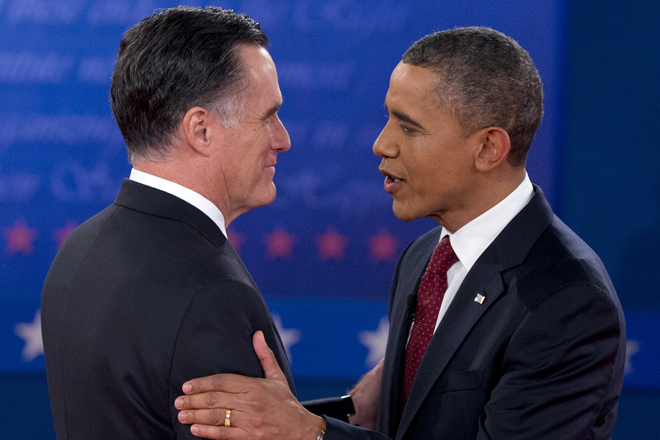Delivering his victory speech following his re-election in 2012, President Obama adhered to standard practice by offering warm words for his vanquished opponent. “I just spoke with Governor Romney and I congratulated him and Paul Ryan on a hard-fought campaign,” the president told supporters in Chicago. “We may have battled fiercely, but it’s only because we love this country deeply and we care so strongly about its future. From George to Lenore to their son Mitt, the Romney family has chosen to give back to America through public service and that is the legacy that we honor and applaud tonight.”
But just before he uttered those amiable remarks, an startled Obama expressed annoyance at what he viewed as Romney’s racially-tinged concession call, according to a new memoir by Obama strategist David Axelrod.
The president was “unsmiling during the call, and slightly irritated when it was over,” Axelrod writes in “Believer: My 40 Years in Politics,” of which the New York Daily News obtained an advance copy.
“‘You really did a great job of getting the vote out in places like Cleveland and Milwaukee,’ in other words, black people,'” Obama said, paraphrasing Romney’s remarks in the call. “That’s what he thinks this was all about.”
Indeed, shortly after losing the election, Romney said in a call to donors that Obama secured a second term by offering “gifts” to such “targeted groups” as African American, Latino, and Millennial voters. Romney cited the Affordable Care Act, which he told the donors granted free health care “in perpetuity” to minority and low-income voters.
Last week, after a brief public flirtation with a third presidential run, Romney announced that he would not seek the presidency in 2016. As he weighed taking the plunge once again, the former Massachusetts governor sought to reinvent himself as an anti-poverty warrior deeply concerned about the plight of America’s marginalized and vulnerable.

